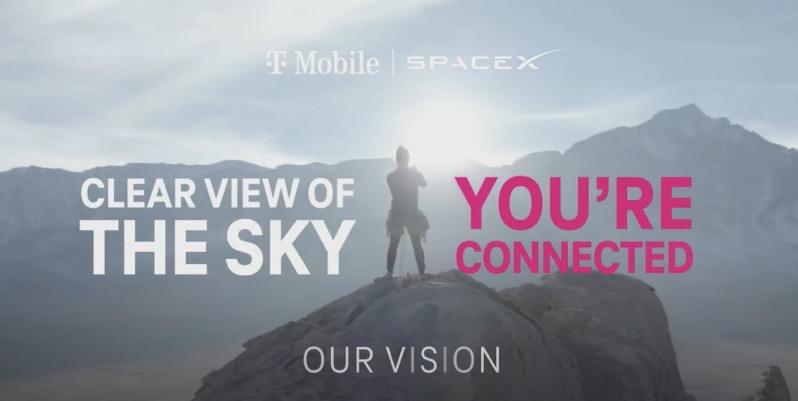
SpaceX Seeks FCC Approval for T-Mobile Starlink Cellphone Service

SpaceX on Tuesday filed an application with the U.S. Federal Communications Commission (FCC) to outfit 2,016 second-generation Starlink satellites with payloads for the “direct-to-cellular system” it is partnering with T-Mobile on, as spotted by Tesla North reader Nathan Owens (@VirtuallyNathan).
Back in August, SpaceX and T-Mobile announced satellite phone and data service for the latter’s customers, powered by second-gen Starlink satellites in low Earth orbit and T-Mobile-owned wireless spectrum, starting in 2023.
“SpaceX requests U.S. market access for its German-licensed direct-to-cellular payload to communicate on an unprotected, non-interference basis in the 1910-1915 MHz uplink E-s and 1990-1995 MHz downlink s-E bands PCS G Block with off-the-shelf cellular mob,” the FCC filing reads.
The equipment in question will help bridge connectivity gaps by connecting phones on T-Mobile’s network (and its partners’) to Starlink satellites when ground coverage isn’t available.
“The service will be able to provide voice, messaging, and basic web browsing at theoretical peak speeds of up to either 3.0Mbps or 7.2Mbps peak upload … and up to either 4.4Mbps or 18.3Mbps on the downlink,” SpaceX wrote in its application.
SpaceX wants to use spectrum in the 1910-1915 MHz and 1990-1995 MHz LTE bands, which T-Mobile has already licensed. As such, SpaceX said any T-Mobile LTE smartphones should be able to connect to the satellite service without consumers having to do anything special.
“Operating essentially as cellular base stations in space, direct-to-cellular payloads will give T-Mobile a means of reaching mobile devices provisioned for its own and partner networks when terrestrial base stations are out of reach or unavailable,” SpaceX told the FCC in a document attached to its filing.
In addition to eliminating mobile dead zones, the Starlink-T-Mobile service will be able to serve as a backup for communications in emergency situations.
“For all consumers, the service will provide peace-of-mind in situations where real-time communications are critical, even lifesaving. Hikers experiencing an emergency in a remote area would be able to call or text for help using the service,” SpaceX wrote in its application.
According to a report from earlier this week, SpaceX is building gateway “Megasites” for its second-generation Starlink satellites, which will support cellphone coverage. Independent of its partnership with T-Mobile, SpaceX is also petitioning the FCC for a standalone Starlink phone service.

